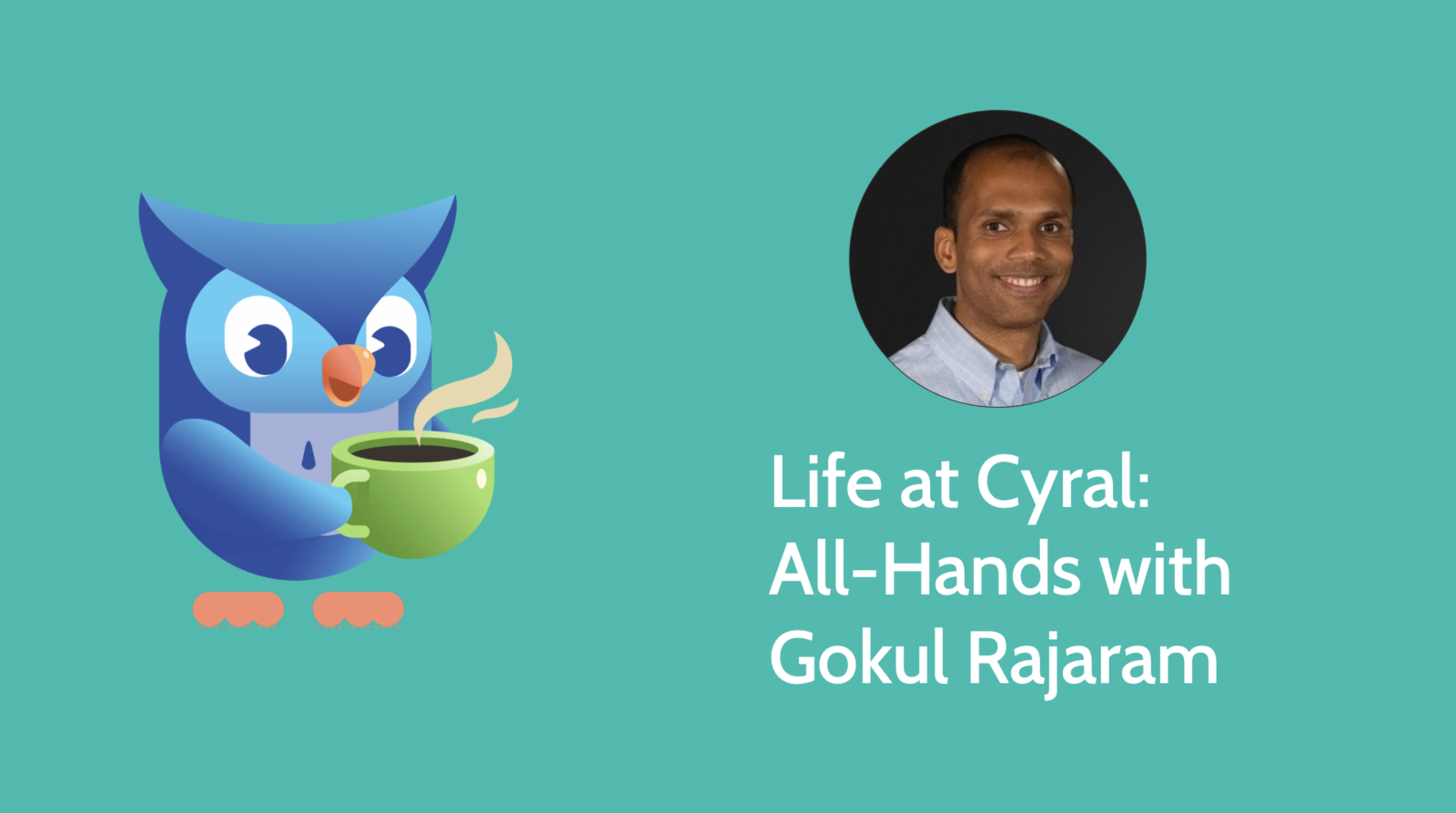Part two of our new Cyral community blogpost series (find part one here) finds the Parliament of Owls continuing our discussion on product leadership and proficiency with another inspiring guest of honor. Gokul Rajaram, currently serving as a product executive at DoorDash, was kind enough to stop by to share some of his well earned wisdom with the Owls.
“IF YOU DO GREAT WORK FOR A GREAT COMPANY, YOU’LL NEVER HAVE TO LOOK FOR A JOB AGAIN.”
Gokul Rajaram currently serves on the executive team at DoorDash, where he leads Caviar, a premium food ordering service. Prior to DoorDash, he worked at Square, where he led several product development teams and served on Square’s executive team. Prior to Square, he served as Product Director of Ads at Facebook, where he helped Facebook transition its advertising business to become mobile-first. Earlier in his career, Rajaram served as a Product Management Director for Google AdSense, where he helped launch the product and grow it into a substantial portion of Google’s business. Amongst other successes, Gokul has been investing and advising for dozens of companies, serving on over ten public and private boards for the past 12 years, making him an invaluable guest for our wondering Owls. We sat down with Gokul, computer to computer, and learned a few keys to maintaining success and longevity in tech:
- When considering a career move, join companies that have two qualities: strong leaders and clear missions. While there is some luck involved in landing a job at a great company, if you put in the work, you’ll never have to worry about finding another job again. The people who move out will pull you with them because they know what you’re capable of.
- The key to productivity is keeping your mailbox at zero and your mind free and clear. To achieve that state, keep in mind that there are two types of tasks: those that take less than five minutes and those that take more. When you get an email, decide which kind it is, and deal with the quick requests right then and there. With the requests that take longer, write them down in a separate list or a notepad and track them separately. For more tips check out: Getting Things Done: The Art of Stress-Free Productivity by David Allen.
- Launching product features isn’t a goal in itself. Every feature should be launched with clear hypotheses to be proven or disproven. Every feature requires iteration until you discover what works. If too many features are launched at once, it gets exponentially hard to maintain the discipline of continuous improvement.
- Finding the right compromise between speed and quality is a tricky game of balance, but one that must be mastered. That trade-off will likely be different for every company.
- People want simplicity—they want things that are easy to use without calling customer service or watching a YouTube how-to video. While it’s a high bar to reach, enterprise software should aspire to be as simple and usable as consumer apps. If multiple generations of users can use the product effectively, it is in fact, simple.
- Too often, companies default to business goals that are based on output metrics. To master goal setting, reframe your goals around customer behavior changes you wish to achieve—ultimately, your customer is the crucial metric for success.
- Having one key target metric is important as you execute toward your vision. But it’s equally important to have a “check metric” – a metric that ensures that you are reaching your goal without detriment to the business. Whether it’s your profitability, customer attrition rate, or some measurement of product quality, make sure you have one.
- The best way to get noticed in a crowded market is when your initial customers talk about you. Your best promotion is a happy customer.
It was a pleasure to zoom in with Gokul, and our Parliament of Owls thanks him for sharing his incredible insight with us. If you want to learn more about Gokul, please follow him on Twitter and Medium. That’s owl for now!


